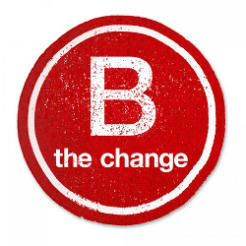The benefit corporation, a structure pioneered in the US to encourage businesses with social purpose, will launch in the UK this week, with charity law firm Bates Wells Braithwaite among the first adopters.
Benefit corporation or 'B corp' status is awarded to "socially conscious businesses that meet externally audited rigorous standards of social and environmental performance, accountability and transparency", according to B Lab UK, a not-for-profit body set up to co-ordiate B Corp activity in the UK.
B corp status is considered distinct from social enterprise, according to umbrella body Social Enterprise UK, because it does not require an asset lock or redistribution of profit. But SEUK said it welcomed the introduction of the B corp model.
The movement is backed by legislation in the majority of US states, but in the UK it will be based on a certification model.
B Lab UK, which will manage the certification process, has been incorporated as a not-for-profit company limited by guarantee and has applied to the Charity Commission for registration as a charity.
The certified B corp movement officially launches in the UK on 24 September 2015, with 50 newly registered businesses.
The movement is common in the United States which currently has more than 1,300 certified B corps from over 120 industries and over 40 countries. US-based B corps include ice cream makers Ben & Jerry’s.
A statement from Bates Wells Braithwaite (BWB) said the movement aims to “redefine success in business”.
Martin Bunch, managing partner at BWB, said:
“Becoming a certified B corporation is a defining moment for BWB. Since its launch in 1970, the firm has always combined commercial work with furthering social value and the public interest.
“We are proud to be the first UK law firm to be certified in this innovative movement that seeks to transform business culture in the UK.”
SEUK welcomes B corps but warns of confusion
Nick Temple, deputy chief executive of Social Enterprise UK (SEUK) told Civil Society News there are lots of questions about the ways that certified B corporations operate.
“It is aimed at private sector organisations, big and small, who are seeking to demonstrate that they are really responsible and ethical in the way they operate,” he said.
“The main difference, then between B corps and social enterprises, is that B Corps will be shareholder-owned and able to distribute profits & dividends to investors and shareholders, whereas social enterprises have locks on this, and reinvest the majority of their profits back towards the mission.”
Temple said SEUK was “supportive of any initiative that encourages other businesses to operate more as social enterprises do - with fairness and social and environmental concerns at their heart”.
“We recognise that another label has the potential to add to confusion, which is why we're seeking to work with B Corps to help them find their place and role in what is a very different landscape to the US,” he said.










